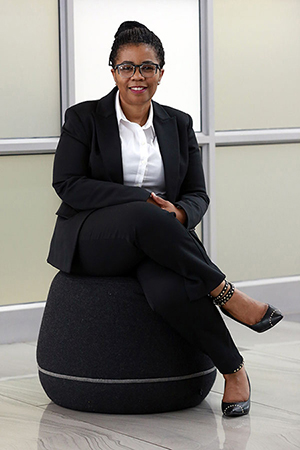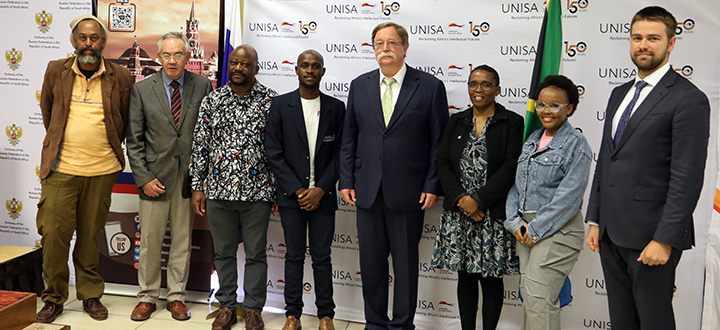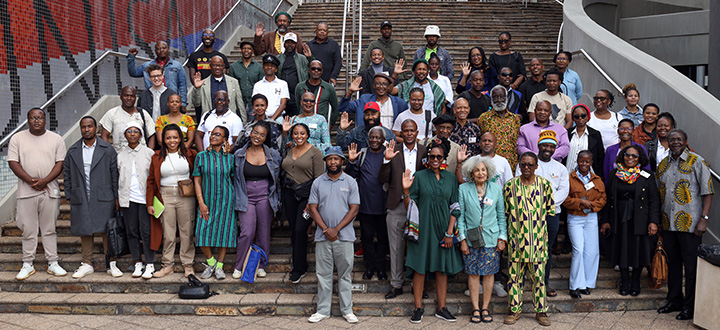News & Media
A gendered perspective on responses to the Covid-19 pandemic
The unprecedented outbreak of the Covid-19 pandemic has resulted in deepened economic and social stress, coupled with restricted movement and social isolation measures, which has also led to an increase in gender-based violence.
Fiscal stimulus packages and emergency measures to address public health gaps have been put in place in many countries to mitigate the impacts of Covid-19. It is, however, crucial that all national responses place women and girls - their inclusion, representation, rights, social and economic outcomes, equality and protection - at the centre if these measures are to have the desired necessary impacts. This was the backdrop at which the Thabo Mbeki Foundation hosted its 12th International Women’s Day event where Prof Puleng LenkaBula, Principal and Vice-Chancellor of Unisa, delivered a keynote address.
LenkaBula argued as a point of departure that it is undisputable that in local and global contexts, the hardest hit victims of the devastation and trauma caused by Covid-19 are women, especially African women. She illustrates that: "There is a general perception amongst scholars that the gains made towards gender equality have been reversed by the pandemic. The pre-existing inequalities are deepened, exposing vulnerabilities in social, political and economic systems."

Prof Puleng LenkaBula, Principal and Vice-Chancellor, Unisa
To consider the status and hopes for women in a post Covid-19 world, LenkaBula suggested that we may first begin by considering what the impact of the pandemic has been like for women, gender-non-confirming persons and our society. "Women earn less, thus save less (if at all), hold less secure jobs and are more likely to be employed in the informal sector," explained LenkaBula.
Women form most workers in the tourism, fashion, retail, hospitality, health, home care, foundation phase education, beauty and entertainment industries (STATS, SA 2018). "It is an irrefutable fact that these jobs are generally low paying when compared to jobs in male-dominated sectors such as finance, management, agriculture, construction and mining industries," she said. With the sudden striking by Covid-19, change had to happen. The threat of lasting negative implications outweighs the positives. "Job losses for women pose a threat to women empowerment and progress in industry, moving women equality backwards after immense progress has been made," LenkaBula explained.
She explained further that it is therefore important that a reflection on the status of women in society necessitated consideration on the different roles women play. Since women have to be mothers, workers, spouses, partners, breadwinners, leaders and caregivers, among other roles, LenkaBula said there’s a need to re-think forms of labour, spaces of work and modes of working that prioritise women’s realities. "If companies have proven that they can be productive through tapping into 4IR modalities, some women can be given flexible in/out of office schedules to accommodate their needs. For instance, during loss of income, for whatever reason, such as divorce, or even losing, replacing and training a helper, women with children with special needs could all benefit from a blended, multi-sited work environment," she said.
Hopes for women in a post-Covid-19 world
"The theme of this seminar reminds all of us about our responsibility to respond to the gendered crisis which has come to expose the vulnerabilities of the female selves. As women who have gone through the ranks, well conversant that an injury to one is an injury to all, also persuaded by the ubuntu communal mentality, it is my hope that our energies will be channelled towards the holistic recovery of our communities, even in our vision for a gender-conscious women-affirming world," she said.
She added further that she envisioned a future in which the equality of women beings as humans created in God’s image would be embraced and affirmed even in the important decisions, especially those which affirm their well-being. She submitted, in conclusion, that since women are employed in the health sector and are traditional caretakers in families, they are consequently the most exposed to health risks posed by the virus. "I thus envision a future in which women are included in critical policy and decision-making processes, especially as it pertains to national health programmes," said LenkaBula.
* By Tshimangadzo Mphaphuli, Senior Journalist, Department of Institutional Advancement
Publish date: 2021-03-10 00:00:00.0

 Unisa's student leadership engage with Russian ambassador
Unisa's student leadership engage with Russian ambassador
 Re-igniting and re-imagining Pan Africanism, Afrocentricity and Afrofuturism in the 21st century
Re-igniting and re-imagining Pan Africanism, Afrocentricity and Afrofuturism in the 21st century
 Young Unisa science stars join elite Lindau Nobel Laureate group
Young Unisa science stars join elite Lindau Nobel Laureate group
 Education MEC addresses Unisa autism seminar
Education MEC addresses Unisa autism seminar
 Seven Unisans nominated for the NSTF-South32 Awards 2023/2024
Seven Unisans nominated for the NSTF-South32 Awards 2023/2024